-

The entrance of the 'centre for the identification of asylum seekers' in Otranto. It is currently functioning as a Centre of Immediate Assistance (Photo: Maurizio Albahari)
-

Political graffiti in Lecce. 'Everybody free! Migrants out of concentration camps!' Note the Anarchist symbol. (Photo: Maurizio Albahari)
-
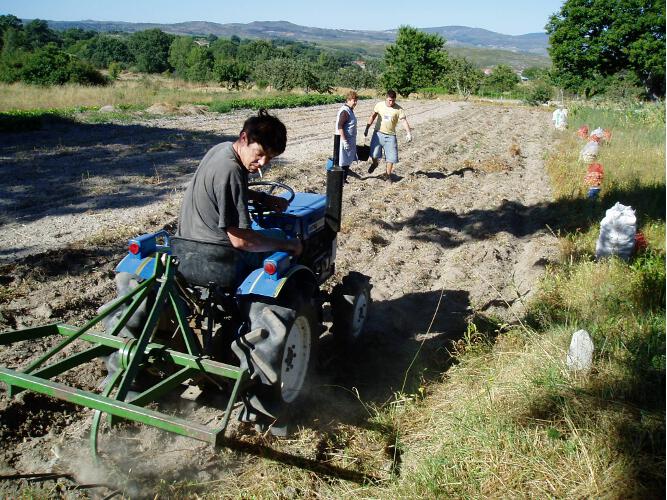
Agricultural work at the Galician border village. The hills on the horizon are in Portugal (Photo: William Kavanagh)
-

Cultivating flowers at the Portuguese village nearest the border (Photo: William Kavanagh)
-

The stone cross marks where the borderline went prior to the 1864 demarcation treaty. The frontier passed through the line of houses on the right (Photo: William Kavanagh)
-
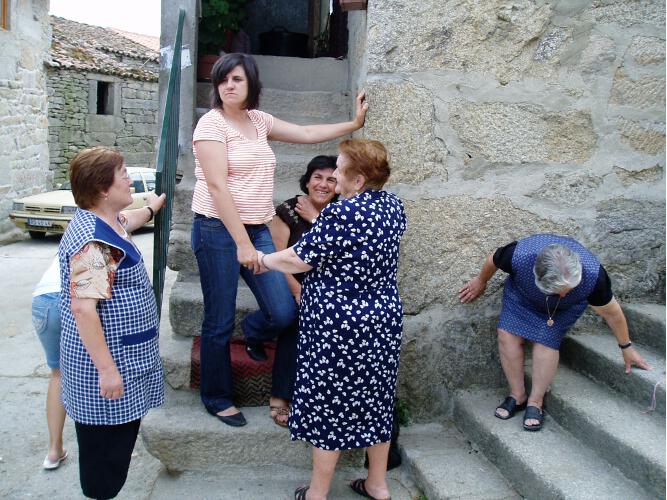
A woman (her back to the camera) from the Galician village on a visit to her Portuguese husband's family at their village across the border (Photo: William Kavanagh)
-

An abandoned border post on the Portuguese - Spanish border today. The change in road surfacing reveals the borderline (Photo: William Kavanagh)
-
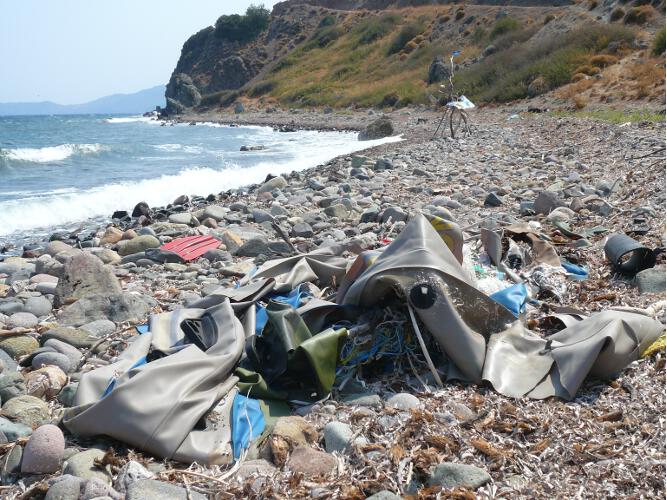
Remains of inflatable dinghies on a remote beach on Lesbos (Photo: Jutta Lauth Bacas)
-
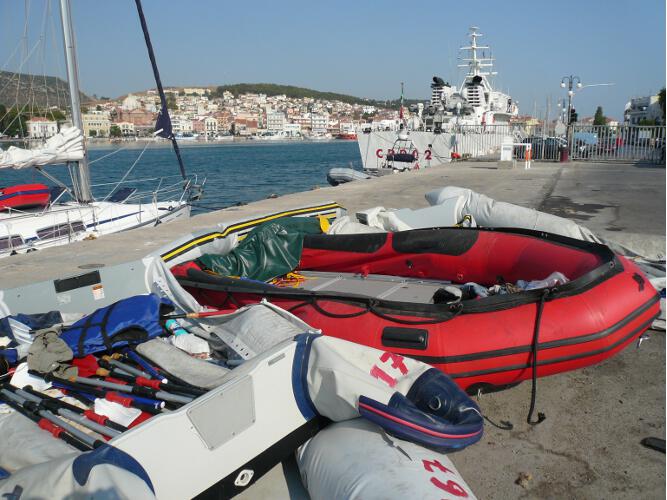
Inflatable dinghies in Mytilini harbour confiscated by the Greek harbour police (Photo: Jutta Lauth Bacas)
-
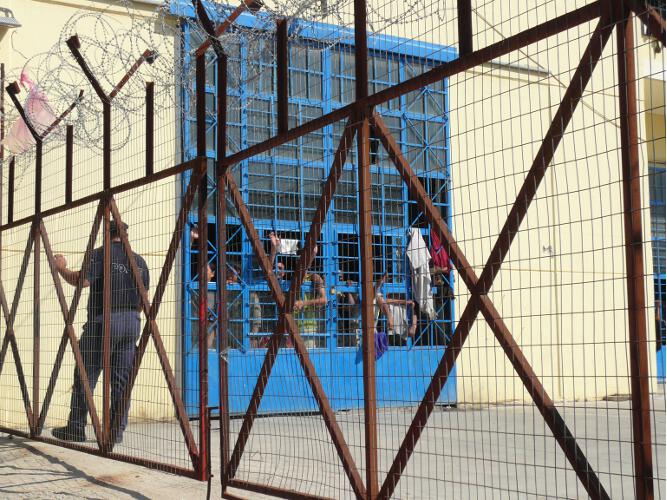
Pagani holding centre with irregular migrants being held in large compounds (Photo: Jutta Lauth Bacas)
-
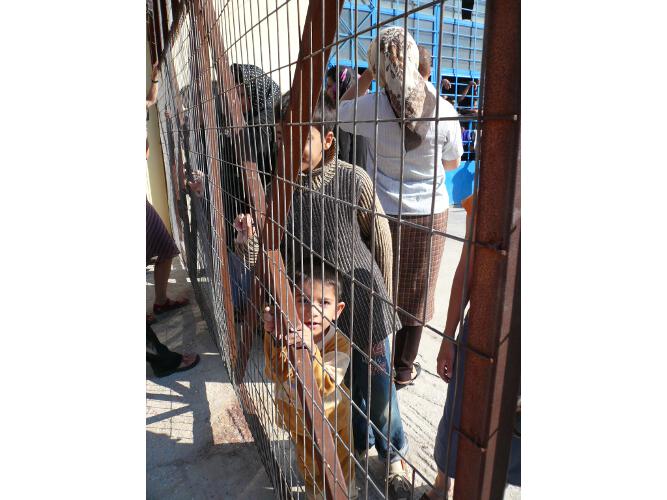
Women and small children being held in detention for several weeks (Photo: Jutta Lauth Bacas)
-

One of the holding compounds and the sanitary installation at the Pagani detention centre used by more than one hundred inhabitants (Photo: Jutta Lauth Bacas)
-
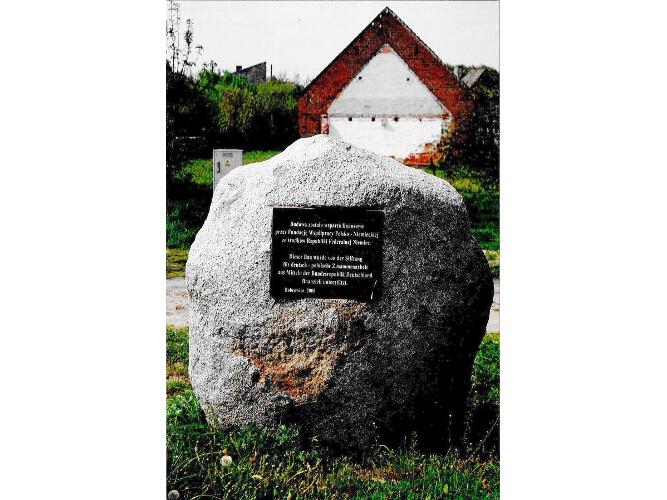
Bobrowice, Poland: plaque thanking the Foundation for German-Polish Cooperation for funding a new sewerage works in the town (Photo: Robert Parkin)
-
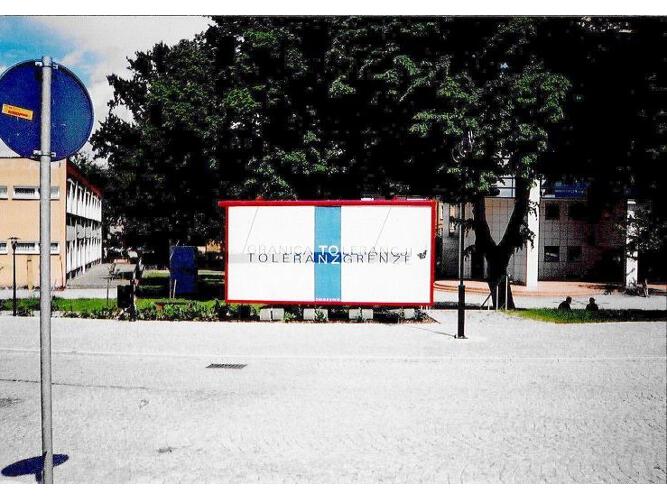
Slubice, Poland: signboard announcing the nearby border with Germany as a 'Border of Tolerance' in German and Polish (Photo: Robert Parkin)
-
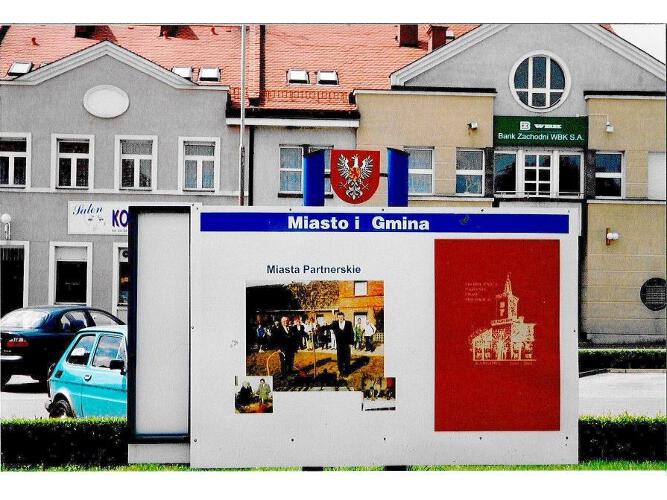
Signboard in a Polish town celebrating its partnership with a German twin. Note that no indication is given of where the latter actually is (Photo: Robert Parkin)
-

A view from the hills overlooking the graveyard in Georgian Sarpi and houses located on the Turkish side (Photo: Mathijs Pelkmans)
-

A Georgian supra with plenty of wine in the house of a former customs officer living in Sarpi. (Photo: Mathijs Pelkmans)
-

The Danube at Orşova in 2010. Before the construction of the Iron Gates I hydropower plant, the river was narrower between Romania and Serbia (Photo: Cosmin Radu)
-
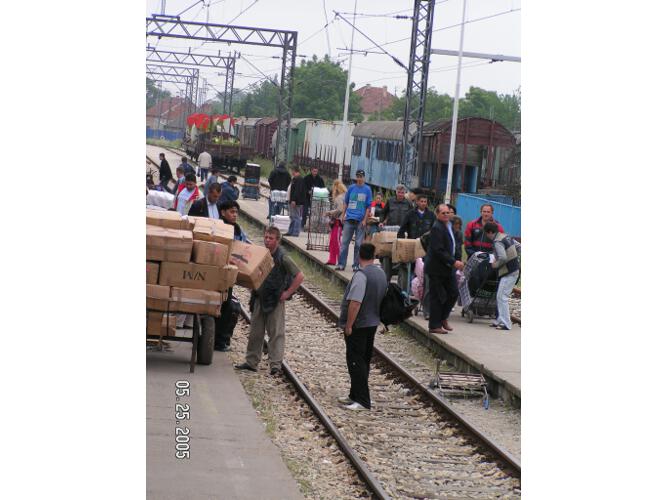
Romanian traders from Timişoara carrying bags of merchandise at Pancevo railway station, Serbia (2005) (Photo: Cosmin Radu)
-

Kozacha Lopan, a railway station at the Ukrainian-Russian border, half way between Kharkiv and Belgorod. The border guard patrol is on its way to check the local train (Photo: Tatiana Zhurzhenko)
-
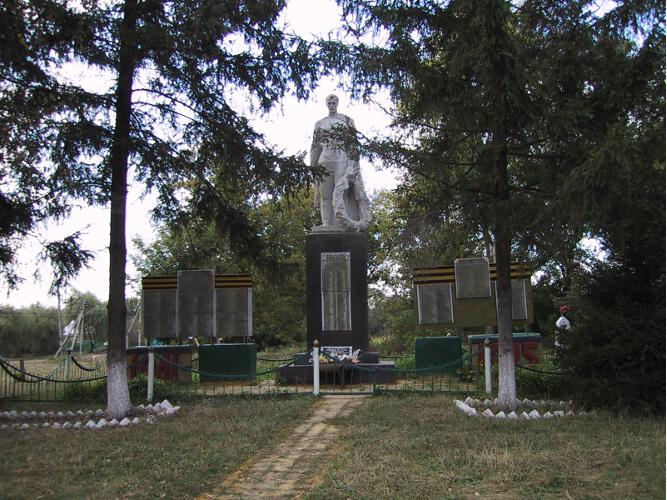
The monument for the liberation from German fascist occupation dominates the central square of Udy, where five hundred and six inhabitants of the village died in the Second World War (Photo: Tatiana Zhurzhenko)
-
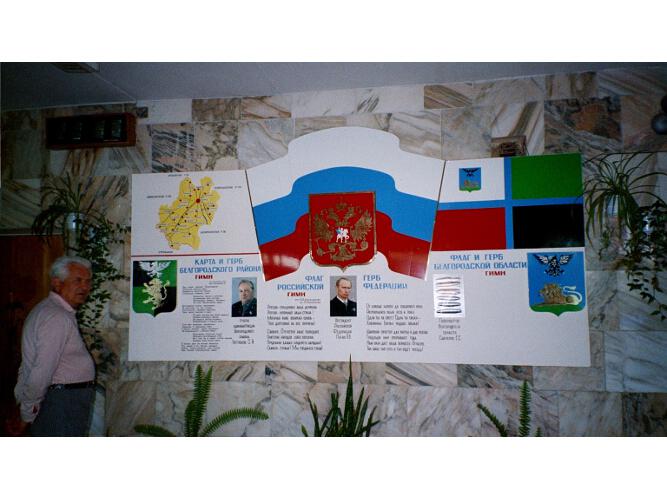
National and regional symbols in Shchetinovka school (Photo: Tatiana Zhurzhenko)
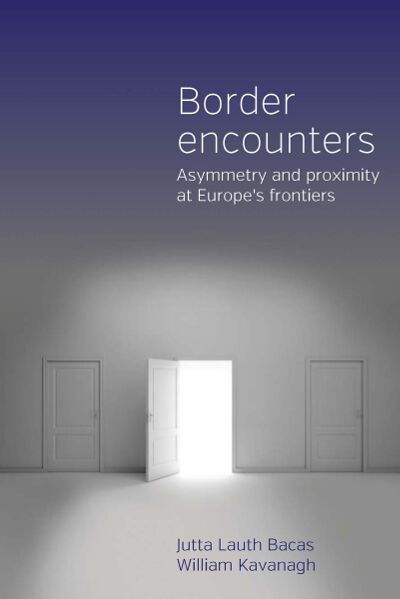
See Related
Anthropology JournalsEmail Newsletters
Sign up for our email newsletters to get customized updates on new Berghahn publications.
Border Encounters
Asymmetry and Proximity at Europe's Frontiers
Edited by Jutta Lauth Bacas and William Kavanagh
302 pages, 26 illus., bibliog., index
ISBN 978-1-84545-396-1 $135.00/£104.00 / Hb / Published (October 2013)
ISBN 978-1-78533-219-7 $34.95/£27.95 / Pb / Published (March 2016)
eISBN 978-1-83695-908-3 eBook
Reviews
“…provides a rich and thought provoking perspective on encounters and connectivity at the borders of Europe – both internal and external.” · The Journal of Cross Border Studies in Ireland
“As befits anthropology, Border Encounters is rich in empirical detail. However, it is also an excellent introduction to border theory, with a helpful literature review. The theoretical framework clearly set out in the Introduction and the individual chapters do collectively illustrate why borders should be seen as constructs and as sites of asymmetrical social relationships…All in all, this is an intriguing and well-structured volume which will be of interest to students and scholars from a variety of academic disciplines.” · LSE Review of Books
Description
Among the tremendous changes affecting Europe in recent decades, those concerning political frontiers have been some of the most significant. International borders are being opened in some regions while being redefined or reinforced in others. The social relationships of those living in these borderland regions are also changing fundamentally. This volume investigates, from a local, ground-up perspective, what is happening at some of these border encounters: face-to-face interactions and relations of compliance and confrontation, where people are bargaining, exchanging goods and information, and maneuvering beyond state boundaries. Anthropological case studies from a number of European borderlands shed light on the questions of how, and to what extent, the border context influences the changing interactions and social relationships between people at a political frontier.
Jutta Lauth Bacas holds a doctorate in Social Anthropology from the University of Zurich with a special focus on migration studies. She has held teaching positions at universities in both Switzerland and Germany and also worked as a researcher at the Academy of Athens, Greece. Co-founder of the Mediterraneanist Network of EASA, she is a member of the Advisory Board of InASEA and co-editor of issues of Ethnologia Balkanica and the Journal of Mediterranean Studies.
William Kavanagh, until his sudden death in 2014, was a Lecturer in Anthropology and Sociology at CEU San Pablo University and the Madrid campuses of New York University and Suffolk University. He co-founded the Mediterraneanist Network of EASA, and was on the executive committees of two Spanish anthropological associations and was a delegate on the World Council of Anthropological Associations.




